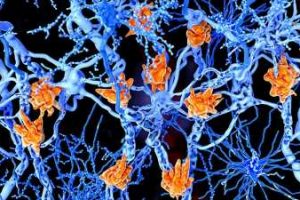RA and Demyelinating Disease: No Consistent Link to TNFi

MILAN — Treatment of rheumatoid arthritis (RA) with tumor necrosis factor inhibitors (TNFi) does not appear to demonstrate a consistent and significant risk for demyelinating disease, according to a systematic literature review presented at the European Alliance of Associations for Rheumatology (EULAR) 2023 Annual Meeting.

Dr Isabel Castrejon
The review was conducted by Isabel Castrejon, MD, of the rheumatology department at Gregorio Marañón General University Hospital in Madrid, Spain, and colleagues. “In male RA patients, a marginal and slight increase in risk was found. The low number of events provides reassurance regarding the use of these drugs. However, careful consideration is recommended for individuals at the highest risk of demyelinating diseases,” Castrejon explained to Medscape Medical News. “Healthcare providers should evaluate the potential benefits and risks of TNFi treatment on a case-by-case basis and closely monitor patients for any signs or symptoms of demyelinating events.”
The researchers performed the review because early data from biologic registries did not provide sufficient clarity, and the association between TNFi exposure and inflammatory central nervous system events remains poorly understood.
Key Findings From the Analyzed Data
Castrejon and colleagues’ review considered 368 studies that included patients with RA, treatment with any biologic including TNFi and synthetic disease-modifying antirheumatic drugs (DMARDs), and demyelinating event.
The studies focused on assessing the risk of demyelinating events following treatment with biologics, particularly TNFi. Some studies included only patients with RA, while others examined mixed forms of arthritis. In cases involving mixed populations, patients with RA were analyzed separately. Additionally, certain studies solely considered multiple sclerosis, while others encompassed various types of demyelinating events. Castrejon said that a meta-analysis of the studies could not be performed because of their heterogeneity.
Among the 368 studies, four observational cohort studies and three nested case-control studies reported a risk of demyelinating events following treatment with biologics. Two nested case-control studies indicated an increased risk in mixed populations but did not separately analyze the subgroup of patients with RA. Two observational cohort studies revealed a marginally increased risk in men with RA who undergo TNFi treatment. In the first study, the incidence was 19.7/100,000 patient-years (95% CI, 13.7 – 27.3) with a standardized incidence ratio (SIR) of 1.38 (95% CI, 0.96 – 1.92), a definite case risk ratio of 0.83 (95% CI, 0.51 – 1.26), and a risk ratio for male patients of 2.75 (95% CI, 1.31 – 5.06). The second study had an SIR of 1.11 (95% CI, 0.63-1.93), a risk ratio for patients with RA of 0.65 (95% CI, 0.24–1.72), and male risk ratio of 3.48 (95% CI, 1.45 – 8.37).
An unresolved question is whether demyelinating events are attributable to the underlying disease itself, which may not have been recognized at the time of diagnosis, or whether they are caused by DMARDs. Additionally, the articles that the reviewers analyzed did not consider patient characteristics that could interact with other factors, such as comorbidities or smoking, that might influence their susceptibility to the development of demyelinating events.
How should clinicians manage patients with RA who are at high risk of developing demyelinating diseases? “Typically, we initiate treatment with conventional synthetic disease-modifying methotrexate and then progress to other drugs,” Maya H. Buch, MBChB, PhD, professor of rheumatology at the University of Leeds, Leeds, England, told Medscape Medical News. “For patients in high-risk groups, there are alternative treatment strategies, especially in comparison to TNFi, where there may be a rationale for their use.” Buch was not involved in the review.
Castrejon and colleagues report no relevant financial relationships.
European Alliance of Associations for Rheumatology (EULAR) 2023 Annual Meeting: Abstract OP0135. Presented June 1, 2023
Follow Medscape on Facebook, Twitter, Instagram, and YouTube.
Source: Read Full Article




